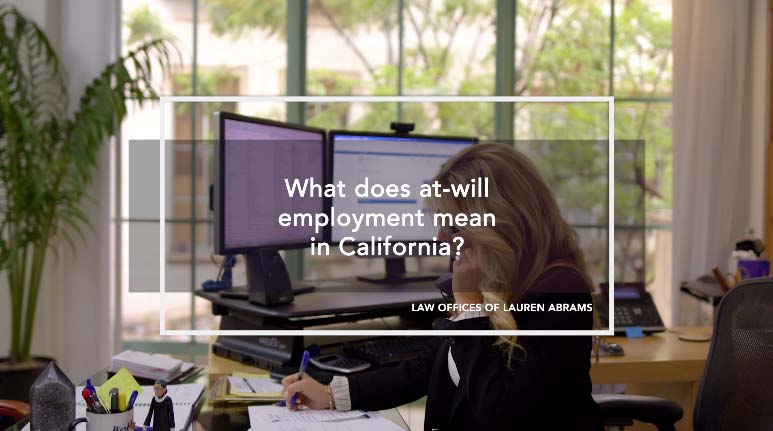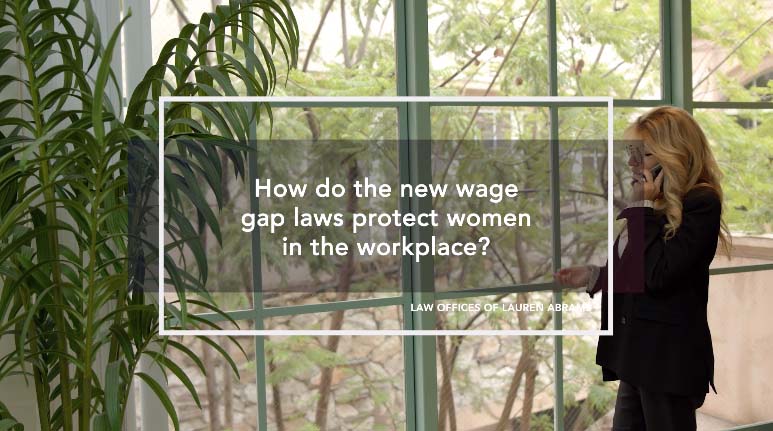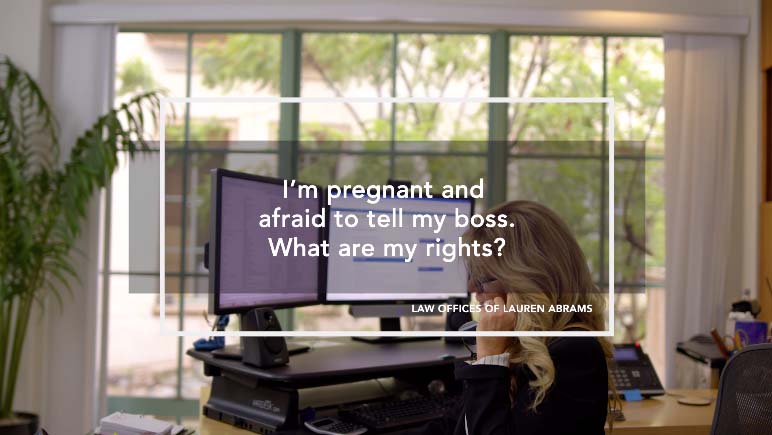Los Angeles Employment Law Blog

What To Do When Discriminated Against at Work?
What should you do if you think you are being discriminated against at your workplace? In this short video, employment attorney Lauren Abrams explains how you can file a complaint against your employer.

What Does At Will Employment Mean?
You may have heard the term ““at will employment” but what does this actually mean? In this short video, employment attorney Lauren Abrams explains what at will employment entails.

How Do Wage Gap Laws Protect Women in the Workplace?
How do the wage gap laws protect women in the workplace? In this short video, employment attorney Lauren Abrams explains wage gap laws and what women in the workplace can do if they are being discriminated against.

What To Do If You Been Wrongfully Terminated From Your Job
What should you do if you think you have been wrongfully terminated at your job?. The following short video lays out the steps you can take if you feel you have been wrongfully terminated.

Pregnancy Rights in the Workplace
What are your rights if you are pregnant and you are afraid to tell your boss? The following short video will help you to better understand what your rights are when you are pregnant.

What If I’m Facing Retaliation in the Workplace?
Are you facing retaliation in the workplace? Employment law attorney, Lauren Mayo-Abrams lays out the steps you can take if you are experiencing retaliation in the workplace.

Workplace Pregnancy Discrimination and Retaliation
In California, labor laws protect women from workplace harassment or discrimination by employers on the basis of pregnancy. Pregnancy discrimination occurs when a pregnant employee or job applicant receives less favorable treatment because they are pregnant or may someday become pregnant. Retaliation laws are in place to protect anyone who reports or opposes any pregnancy-related discriminatory workplace practices, even if they are not a direct victim of the unlawful conduct.

Pay Equity For California Creatives (Part 2)
In our first article, we discussed the steps California has taken to ensure equal pay for equal work and what managers and executives need to do to stay compliant with these laws in California. However, in the entertainment industry as well as other venues (even sometimes law firms), equal work can be difficult to define or prove, as highly skilled and creative individuals carve out specialized roles within the industry.

California Pay Equity in 2020 (Part 1)
2020 has been, among other things, a year in which a spotlight has shone on the issue of inequality in a variety of areas. Those in California are no strangers to the issue of equality, especially in terms of pay, as it has been a hotbed issue for the last several years.

Pregnancy Discrimination California
For years we have fought for gender equality on all levels of employment. From equal pay to equal opportunity in hiring, there are many fronts on which we seek gender equality. However, one experience is unlikely to be available to all genders, at least in this lifetime: pregnancy.
